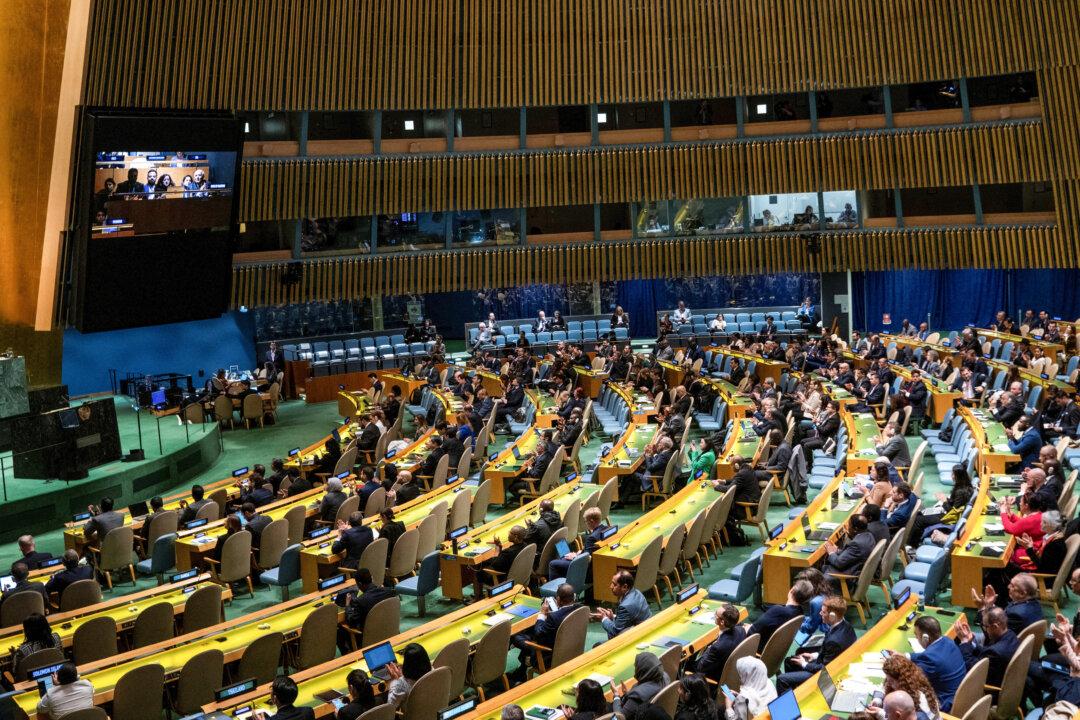The U.N. General Assembly on May 10 overwhelmingly backed a bid for the Palestinian territories to become a full U.N. member by recognizing it as qualified to join and recommending that the U.N. Security Council “reconsider the matter favorably.”
The 193-member General Assembly convened in New York City on May 10 for an emergency special session on the Gaza crisis and passed a resolution that upgraded the Palestinian territories’ status at the United Nations as an observer state without offering it full membership.





